Announcer:
The following program is a PBS Wisconsin original production.
Zac Schultz:
Wisconsin is joining another multi-state lawsuit challenging the Trump administration’s efforts to slash the federal government. At Wisconsin’s Capitol, tribal communities seek justice for the missing and murdered. And the battle over the state budget begins in earnest.
Good evening. I’m Zac Schultz, filling in for Frederica Freyberg. Tonight on Here & Now, State Attorney General Josh Kaul on the multi-state lawsuits Wisconsin has joined. Republican Representative Mark Born on state budget priorities. Wisconsin’s Tribes ask for more help as cases of the missing and murdered go unsolved and what extended Medicaid coverage could mean for mothers. It’s “Here & Now” for May 9th.
Announcer:
Funding for “Here & Now” is provided by the Focus Fund for Journalism and Friends of PBS Wisconsin.
Zac Schultz:
Governor Tony Evers announced this week Wisconsin has joined another multi-state lawsuit against the Trump administration. This time suing the Department of Transportation over its decision to block the release of $60 million in federal funds that would support electric vehicle infrastructure around the state. Behind each lawsuit is Wisconsin’s Democratic Attorney General Josh Kaul who joins us now. Thanks for being here.
Josh Kaul:
Thanks for having me.
Zac Schultz:
So this makes 15 lawsuits, by our count, in which the state is suing the federal government over issues like job cuts, policy changes and federal funding the Trump administration won’t release, as in this case. Why is it that the state attorneys general are the ones taking the lead when it comes to battling some of these executive orders out of the Trump administration?
Josh Kaul:
Well, the basic reason is that a lot of what the Trump administration is doing is flouting the law, and that means going to court and getting accountability. I look at two basic things in deciding whether Wisconsin should get involved in a multi-state suit. One is, is there a policy that’s harmful to Wisconsinites? So cutting over $60 million in funds that should be coming to Wisconsin and undermining our clean energy efforts, which is bad for the environment and also bad for jobs in Wisconsin, that’s harmful to Wisconsinites. And then secondly, is there a sound legal basis for challenging the policy? And here, this is a law that was passed by Congress and signed into law by the president at the time, the bipartisan infrastructure law. And Donald Trump doesn’t get to overrule that by fiat. That’s not how our constitutional republic works. So I believe we have a sound legal basis for challenging this. And so in this case, as well as the others, those two factors are met. And so we’ve gone to court to seek relief on behalf of the people of the state.
Zac Schultz:
In some of these cases you’re asking a federal court to block an executive order to prevent something like job cuts from happening. In other cases, you’re asking for them to do something, as in release funds.
Josh Kaul:
When it comes to the disbursement of some of these funds, there are processes in place. There’s a lot of work and planning that’s been done. And the Trump administration has come in and essentially told appointees to stop following the law and not do what you’re required to do under the law. We’re going to exercise our own policy judgment. And that’s, again, that’s just not how our system of government works. If we had a king who could act by fiat, that’s how it would work. But we have a system of laws, and the president’s duty under the Constitution is to faithfully execute those laws. So what we’re getting — what we’re requesting is that he be blocked from intervening and stopping the laws from being complied with.
Zac Schultz:
So victory in any of these cases applies to the entire United States. So why is it important for Wisconsin specifically to be involved?
Josh Kaul:
Well, actually, it doesn’t necessarily apply nationwide. It depends on the case. In some of these cases, we seek nationwide injunction. So orders that block policies across the country. But in some cases, either we only seek relief in the particular states involved or the judge decides to only issue relief in those states. So, for example, in the case involving the freeze on federal funding, which would have caused catastrophic effects nationwide if it had gone into effect. Right now, the order in place in that case only applies in the plaintiff states. So because Wisconsin was involved, were one of the states that benefits. Now, in addition to that, it’s also important that Wisconsin’s perspective is heard in these cases. If we are not one of the parties to this case, the Wisconsin perspective doesn’t get heard by the court.
Zac Schultz:
So the majority of the states that have signed onto these lawsuits are blue states, or in Wisconsin’s case, a purple state with, you know, Democrats in charge of the administration. Are there Republican AGs that are involved in these? Do you shop this out to red states to see if they’ll sign on?
Josh Kaul:
Well, so far, these multi-state cases against the Trump administration have been all Democratic AGs. And that’s disappointing because in some of these cases, the Trump administration is so clearly flouting the law or the Constitution. I’ll give you a simple example. One of the policy changes we’ve challenged relates to birthright citizenship. And birthright citizenship is literally written into the Constitution. There’s U.S. Supreme Court precedent directly on point. There’s federal law on point. And yet Republican AGs haven’t been willing to join us in fighting back against this. And it’s harmful potentially to their states. As we talked about, some of these orders only apply in the states that are involved. So some states may be left without funds because their AGs didn’t get involved. So it’s my hope that we will see Republicans get more engaged. But so far, both in Congress and in the AGs ranks, Republicans have been unwilling to stand up to Donald Trump and his lawlessness. And it’s critical for the republic that they get involved in this effort to protect our Constitution and protect the rule of law.
Zac Schultz:
We’ve seen Donald Trump try to influence federal judges in the past, threatening impeachment or questioning their independence. Does that matter once you’re in the courtroom arguing the case?
Josh Kaul:
Well, I think it doesn’t matter from the standpoint of our judge is going to be independent and do the right thing. I think we’ve seen them doing that. They’ve been applying the law, and that’s why you see the judiciary, unlike Congress, for example, where judges appointed by Republicans as well as judges appointed by Democrats have pushed back. But where it does matter is that, you know, our constitutional system relies on people respecting the fact that we have co-equal branches and that there is separation of powers. We all need to be involved in protecting our Constitution.
Zac Schultz:
Switching to state politics and the budget. What are the prospects for what you’re asking for for the Department of Justice?
Josh Kaul:
You know, I’m hopeful. We are asking for investments that will help make our communities in Wisconsin safer. We’ve asked for additional funding for victim service programs around the state, because there’s been a significant decrease in federal funding, and we’ve seen some positive feedback from Republicans on that. We’ve asked for continuation of the work being done by the Office of School Safety. And again, that’s received bipartisan support. And the crime labs are a critical component of the criminal justice system in this state. And so making sure that we continue to invest in the labs so that we continue to stay on the cutting edge of technology and continue to be able to test evidence efficiently, is important. So, of course, we don’t know how the process will play out yet. But given that these are public safety investments, I’m hopeful that there will be bipartisan support for what we’ve asked for.
Zac Schultz:
All right. Attorney General Josh Kaul, thanks for your time today.
Josh Kaul:
Thanks for having me.
Zac Schultz:
Republicans in control of the legislature took their first action on the state budget this week, and they voted to strip out more than 600 items from Governor Tony Evers proposed budget, essentially taking the budget back to square one. Deliberations over the next two months will determine the state budget for the next two years. “Here & Now” reporter Steven Potter sat down with Joint Finance co-chair and State Representative Mark Born to talk about how Republicans plan to approach this process.
Steven Potter:
What are the Republican priorities for the next two-year state budget?
Mark Born:
I think that they will be similar to what you’ve seen in the last couple of budgets, and that means that there needs to be tax reform, and there needs to be investment in key priorities. And those key priorities are things that we hear about in our districts every day. And I don’t think most of them are a surprise to folks. It’s investing in the future in education. It’s healthcare. It’s roads, especially local roads. Things like that. And but — key to part of that too is the tax reform package. It has to work together. It’s not just about spending on things. It’s about creating the proper environment in Wisconsin for families and businesses to succeed. And some of that’s investment in key things like education and some of that’s things like tax reform to make sure that we’re competitive in the Midwest and in a global economy with being able to support your family and run a business here in Wisconsin.
Steven Potter:
Of course there are competing priorities between Democratic Governor Tony Evers and Republican leadership. But where might be the compromise in this state budget?
Mark Born:
You look at historically, we’ve done some great compromises in education in the last budget for both public education and vouchers to have options for parents and students. We made great strides in shared revenue, investing in local communities, especially in public safety in the last budget. We were able to keep the Milwaukee Brewers in Wisconsin for a long time with a good compromise there. So I’m hopeful that there will be opportunities for that in this budget. I think that the Corrections is an area that really needs some work. I think that’s one thing in the governor’s budget that can maybe be ripe for compromise. But, you know, we’re starting discussions here a few weeks ago with the governor on tax reform. I’m hopeful we can find some common ground there because, like I said, it’s an important part of an overall budget.
Steven Potter:
You’ve been traveling the state with your other committee members, listening to Wisconsin residents about what they feel is important to have in the state budget. What did you learn at those sessions?
Mark Born:
Yeah, I think we heard some of those common themes that I mentioned some of them earlier: education, infrastructure like roads, health care. This time we had a little bit more of discussion of federal issues because that was kind of top of mind for folks with changes in Washington, D.C. so that was maybe a little bit of a different flavor that we’ve had in past public hearings. There’s always a few regional things, but most of it’s the steady themes and it’s issues that aren’t really a surprise to folks. It’s the stuff that everyone’s talking about.
Steven Potter:
We’ve seen federal cuts impact a number of state organizations, and there’s also cuts to research and threats to cut programs like Head Start and Medicaid, among other programs. Does the state have an obligation to backfill those programs where the federal government has cut or reduced or eliminated programs?
Mark Born:
I think there are some things that can be discussed if there are priorities for Wisconsin that used to be paid for in other ways, you know, should Wisconsin prioritize that? But one of the things I think that’s most important is, unlike the feds, we don’t print money. We have to have a balanced budget. And so there’s no way that the state government could ever fill every federal cut that could be made. The budgets are just not comparable. Instead, we will look at everything case by case. And if there are things that the state needs to prioritize differently because of adjustments in the federal government, we’ll do that. We’ve always done that. We did that over a year ago now when under the previous administration, changes were made to VOCA funding for victims of crime. And on our last day of session, we put some more money into that program to help make sure that domestic violence shelters and things like that could get through to the next budget cycle, and we could talk more about that. And so it’s not unusual for us to have to look at changes at the federal level. We’ll do the same, but there should be no expectation that the state will just fill voids. That’s not realistic. That’s not how the math could possibly work for a state budget.
Steven Potter:
The Wisconsin Supreme Court recently affirmed Governor Evers’ partial veto when it comes to school levy increases. Does the state intend to fund those increases, or will it leave it up to the school boards and the local municipalities to fund those increases?
Mark Born:
And that’s going to be part of the budget discussion. But I certainly think this is a good example of, you know, the unintended consequences, maybe, of the governor being cute with his line-item veto, and now he’s forced funding and tax increases on communities in Wisconsin for 400 years. And it’s muddied the waters in education discussions and makes that part of the budget a little more difficult. But I certainly don’t think it’s our job to try to fix his mistakes. I think that in some ways, he’s going to have to live with that.
Steven Potter:
There’s also the state surplus which stands at more than $4 billion now. How does that surplus affect how you write the budget this year?
Mark Born:
It certainly plays a role but the important part of that is, is that’s more like your savings account, right? That’s one time money. It’s not something that we want to build a budget that spends into the future on because at some point that savings account would be empty then and we’d run out of money, and it wouldn’t be a smart way to budget. But it is a great way to do one-time investments like infrastructure things. So we should be able to do some capital budget things, some road things, maybe even fill some voids in the federal funding to see what the future looks like and balance that with some good tax reform so we can have a good budget for the whole state of Wisconsin.
Zac Schultz:
The Trump administration issued an executive order last week directing the Corporation for Public Broadcasting to halt direct funding of PBS and NPR. PBS Wisconsin is a member station of PBS. The Corporation for Public Broadcasting is not a federal agency under control of the administration. Instead, it’s a private organization created and funded by Congress. Congress has appropriated $535 million for the CPB. Much of that funding flows down to member stations across the country. Approximately 10% of our budget at PBS Wisconsin comes from that funding. The leadership at PBS and NPR have vowed to fight this order in court, calling it illegal. The Trump administration has also said it plans to introduce a rescission package in Congress, a method to eliminate congressionally authorized spending. It’s been reported that package would include future funding for the CPB. Those are the facts. We’ve been asked by our viewers what the cuts would mean to PBS Wisconsin, and for that, we wanted you to hear directly from our leadership team. So I spoke with Jordan Siegler, executive director of Wisconsin Public Media.
Jordan Siegler:
At the federal level, a lot of these cuts are at this point, they’re ideas, and they certainly do threaten aspects of our funding. But everything is speculative. This is perhaps the biggest threat to public media funding that we’re facing currently, at least in recent memory. However, the system is very strong. Our message is very strong. Our service to the state and to this nation is proven. And so right now we’re really focused on telling our story of impact. Of course, we’re paying attention to the threats that we face, but we’re really focused on serving our audiences through our education services, through community connections, and through local content that reflect the state and the priorities of the citizens.
Zac Schultz:
A rally for missing and murdered Indigenous people was held at the Capitol to bring awareness to this growing concern for the state’s tribal community. “Here & Now” reporter Erica Ayisi spoke with the task force on how they are trying to gather data to address the problem. This report is in collaboration with our partners ICT, formerly Indian Country Today.
Erica Ayisi:
A day of remembrance.
Glory Jean Kelly Walpoose:
I am a relative of Katelyn Kelley, the Indigenous young woman that was stolen from us on June 19th, 2021, and was tragically murdered.
Erica Ayisi:
For Wisconsin’s missing and murdered Indigenous people…
Rachel Fernandez:
Today, we honor our relatives that are still out there missing. Today, we honor our relatives that have been murdered.
Erica Ayisi:
…over 20 speakers gathered outside the Capitol.
Rachel Fernandez:
Today, we stand together in solidarity and unity to bring justice, to bring awareness.
Erica Ayisi:
Awareness about the disproportionate number of missing and murdered Indigenous people in Wisconsin’s Native Tribes.
Woman # 1 at microphone:
Rhys Pocan was my auntie.
Erica Ayisi:
Family members said their loved ones’ names, a reminder to the public that their relative is not forgotten.
Woman # 2 at microphone:
My little brother, Sean Grignon was brutally murdered on the reservation and also my nephew, Cory Grignon.
Erica Ayisi:
A single red hand symbol printed on shirts, skirts and signs signaling that a member of the Indigenous community left home and never returned.
Woman # 3 at microphone:
I had a son murdered one year ago. These two boys, they were best friends. They died together, and their killer is still out there.
Erica Ayisi:
A Milwaukee mother grieves and calls for justice.
Woman # 3 at microphone:
Monroe Weso and Alex Sanchez. We need justice.
Erica Ayisi:
Missing and murdered Indigenous people is an increasing concern affecting all of Wisconsin’s Native Tribes. Many of these cases go unsolved, like the murder of Andy Lemke’s cousin.
Woman # 4 at microphone:
Rae Elaine went missing when we were just 18 years old. She had a six-week-old baby, Alysse.
Erica Ayisi:
Shannon Holsey, president of Stockbridge-Munsee Band of Mohican Indians, says addressing the issue of missing and murdered Indigenous people starts by dismantling erasure towards Native Americans and respecting tribal sovereignty.
Shannon Holsey:
Accepting what sovereignty looks like, allowing Tribal Nations to exercise that sovereignty, and looking at cross-jurisdictional ways to share that data to make sure that we come together as collective people and understand that this is not an MMIR crisis. This is a humanitarian effort.
Erica Ayisi:
In 2020, state Attorney General Josh Kaul formed the Missing and Murdered Indigenous Women Task Force to help address this effort. According to the Bureau of Indian Affairs, there’s over 4,000 unsolved cases across America. But here in Wisconsin, that exact number is difficult to track. The task force says they’re releasing a report by the end of this year. And the exact number of missing Indigenous people in Wisconsin is also missing.
Justine Rufus:
We lack resources, including just simple, like databases. Every other police officer in the state has access to, like an NCIC database where when a person goes missing, they immediately — that will go through all the police forces and we don’t have access to that type of equipment. That’s very vital when our relatives go missing.
Erica Ayisi:
Justine Rufus, chair of the Wisconsin’s Missing and Murdered Indigenous Women Task Force, says their upcoming report includes a request for $3.5 million.
Justine Rufus:
For liaison positions and why we decided that we needed to do that is because as a task force, we never anticipated families coming directly to us and needing our assistance when their relatives went missing, or for them to come to us if they wanted to look at cold cases.
Erica Ayisi:
About 80% of Indigenous people live in urban areas. Others live on reservations. Rufus says part of their action plans for the state are collaborative efforts between county and tribal jurisdictions.
Justine Rufus:
We really rely on our county partners to identify us correctly and to get that data back to our tribal communities, and that system just isn’t in place. And so that’s something that we are recommending.
Erica Ayisi:
Stories of pain…
Woman # 5 at microphone:
Rae Elaine Tourtillott was my cousin.
Erica Ayisi:
…and loss.
Woman # 6 at microphone:
Mary C. Tomow.
Erica Ayisi:
…were matched with support for healing.
Rachel Fernandez:
We need to hear these stories, and these stories need to be told because we need justice. We need healing.
Man at microphone:
Kyle Stout, he was murdered.
Woman # 5 at microphone:
Braxton Lee Phillips, you are never forgotten.
Erica Ayisi:
Reporting from Madison, I’m Erica Ayisi for “Here & Now.”
Zac Schultz:
Wisconsin faces a maternal health care crossroads. While the state Senate just passed a bill to extend postpartum Medicaid coverage from 60 days to a full year, the Assembly’s history of stalling the measure leaves thousands of new mothers in limbo. “Here & Now” reporter Aditi Debnath has the story.
Wendy Yuen:
With my daughter, I had really bad postpartum depression and it was a struggle.
Aditi Debnath:
Wendy Yuen is not alone. In Wisconsin, two out of every five mothers give birth on Medicaid. That’s the program that provides health coverage to low-income people. Most states expanded Medicaid to cover postpartum mothers for a year. In Wisconsin, mothers lose coverage just two months after delivery. For many, that means no support during a time of immense physical and emotional change.
Wendy Yuen:
I was on leave when I realized that it was really bad. So at that time, I was only making 60% of my pay and I could barely afford to pay my mortgage and just be able to take care of my son and the new baby and myself.
Ryan Spencer:
Any expansion to Medicaid is highly likely, in any given area or state, to improve access that women have to prenatal care, intrapartum care, and postpartum care.
Aditi Debnath:
Dr. Ryan Spencer is an ob-gyn at the UW-Madison Medical School. He says the state is in a maternal health care crisis, in part due to years without Medicaid expansion.
Ryan Spencer:
I think we’re actually in the long-term impacts of having not addressed those for decades.
Aditi Debnath:
The state Senate’s recent vote to extend postpartum Medicaid coverage to a year aims to address the need for care. The bill passed with support from nearly every lawmaker, signaling rare bipartisan agreement on the issue.
Chris Larson:
I think everyone else gets it. Anyone who’s had kids or anybody who’s been around kids knows that the more that you can have that person-to-person attention and frankly, take things off the plate of that parent, the better.
Aditi Debnath:
But the Senate’s vote contrasts sharply with Assembly Speaker Robin Vos’ repeated blocks. He said ahead of the Senate vote…
Robin Vos:
My position has been fairly clear from the very beginning. I’ve never supported an expansion of welfare. I can’t imagine that I would ever support one, but we have to talk about it as a caucus and see where everybody else is.
Aditi Debnath:
Representative Pat Snyder, who introduced the postpartum coverage bill in the Assembly, stresses that this is not a partisan issue.
Pat Snyder:
I’ve told some of the opponents saying that if a mom dies, a lot of times, that might mean the child has to go into foster care or, you know, things to that nature. That’s going to cost the state more than if we just help the moms if they need the help. So, you know, you got to sometimes talk to them about dollars and cents.
Aditi Debnath:
Wisconsin is now one of two states in the nation without a full year of postpartum Medicaid coverage.
Wendy Yuen:
The short period of time that’s covered under state insurance isn’t really enough. Like my daughter’s one and I’m still struggling every day just to, like, keep up with all the things that I have to do to make sure that she’s healthy.
Aditi Debnath:
The challenge is even greater for mothers living outside Wisconsin’s larger cities. Only about half of rural hospitals in the state offer labor and delivery services. Many of those mothers are on Medicaid, which reimburses hospitals significantly less for services.
Ryan Spencer:
Increasing the reimbursement for obstetric care would undoubtedly increase opportunities for hospital systems to run effectively.
Aditi Debnath:
Availability of obstetric services in rural areas has gone down for more than a decade. According to the U.S. Government Accountability Office it is difficult for hospitals in rural areas to recruit and retain maternal health providers. Also, a higher proportion of rural patients rely on Medicaid, which doesn’t fully cover obstetric services. The recent end of birthing services at a rural hospital in northern Wisconsin makes accessing care more difficult. When ThedaCare announced it would close its Waupaca birthing unit, the Common Council unanimously passed a resolution asking it to reconsider. For its part, ThedaCare said “The needs and demands of expectant mothers are shifting. Deliveries have been declining and mothers are choosing to deliver at larger birth centers. The shortage of physicians and nurses in rural areas is an issue being felt across the country and in our region, as labor and delivery complexity is increasing.”
Ryan Spencer:
What you see when you lose a birthing center for a community, increased number of births outside of hospitals. You see an increased number of preterm births when you lose a birthing center as well. You lose the opportunity to get easy access to prenatal care and postpartum care because you don’t have those particular clinicians in that area anymore.
Aditi Debnath:
The nearest full-service hospital is now 30 miles away in Stevens Point. That distance can make a difference in a labor and delivery emergency. The ThedaCare hospital in Waupaca still provides postpartum and prenatal care.
Tony Evers:
Let’s extend postpartum coverage for pregnant women on BadgerCare up to one year after giving birth.
Aditi Debnath:
Governor Evers has once again included the postpartum Medicaid extension in his 2025-2027 budget proposal, alongside more than $18 million over the next two years to increase Medicaid reimbursement rates for obstetric services.
Tony Evers:
There’s also a bipartisan bill to get it done that almost 90 legislators support.
Aditi Debnath:
With the budget debate heating up, Dr. Spencer warns that without action, more birthing units will close and more mothers will fall through the cracks.
Ryan Spencer:
We know that there is something going on related to the health, wellbeing and mortality of women giving birth in rural areas that for some reason is not experienced in urban areas. The CDC has told us your zip code matters as to how risky pregnancy is for you, and we need to pay attention to that.
Aditi Debnath:
Reporting from Madison, I’m Aditi Debnath for “Here & Now.”
Zac Schultz:
For more on this and other issues facing Wisconsin, visit our website at PBSWisconsin.org, then click on the news tab. That is our program for tonight. I’m Zac Schultz. Frederica Freyberg will be back next week. Have a great Mother’s Day weekend.
Announcer:
Funding for “Here & Now” is provided by the Focus Fund for Journalism and Friends of PBS Wisconsin.
Search Episodes
News Stories from PBS Wisconsin

Donate to sign up. Activate and sign in to Passport. It's that easy to help PBS Wisconsin serve your community through media that educates, inspires, and entertains.
Make your membership gift today
Only for new users: Activate Passport using your code or email address
Already a member?
Look up my account
Need some help? Go to FAQ or visit PBS Passport Help
Need help accessing PBS Wisconsin anywhere?

Online Access | Platform & Device Access | Cable or Satellite Access | Over-The-Air Access
Visit Access Guide
Need help accessing PBS Wisconsin anywhere?

Visit Our
Live TV Access Guide
Online AccessPlatform & Device Access
Cable or Satellite Access
Over-The-Air Access
Visit Access Guide
 Passport
Passport
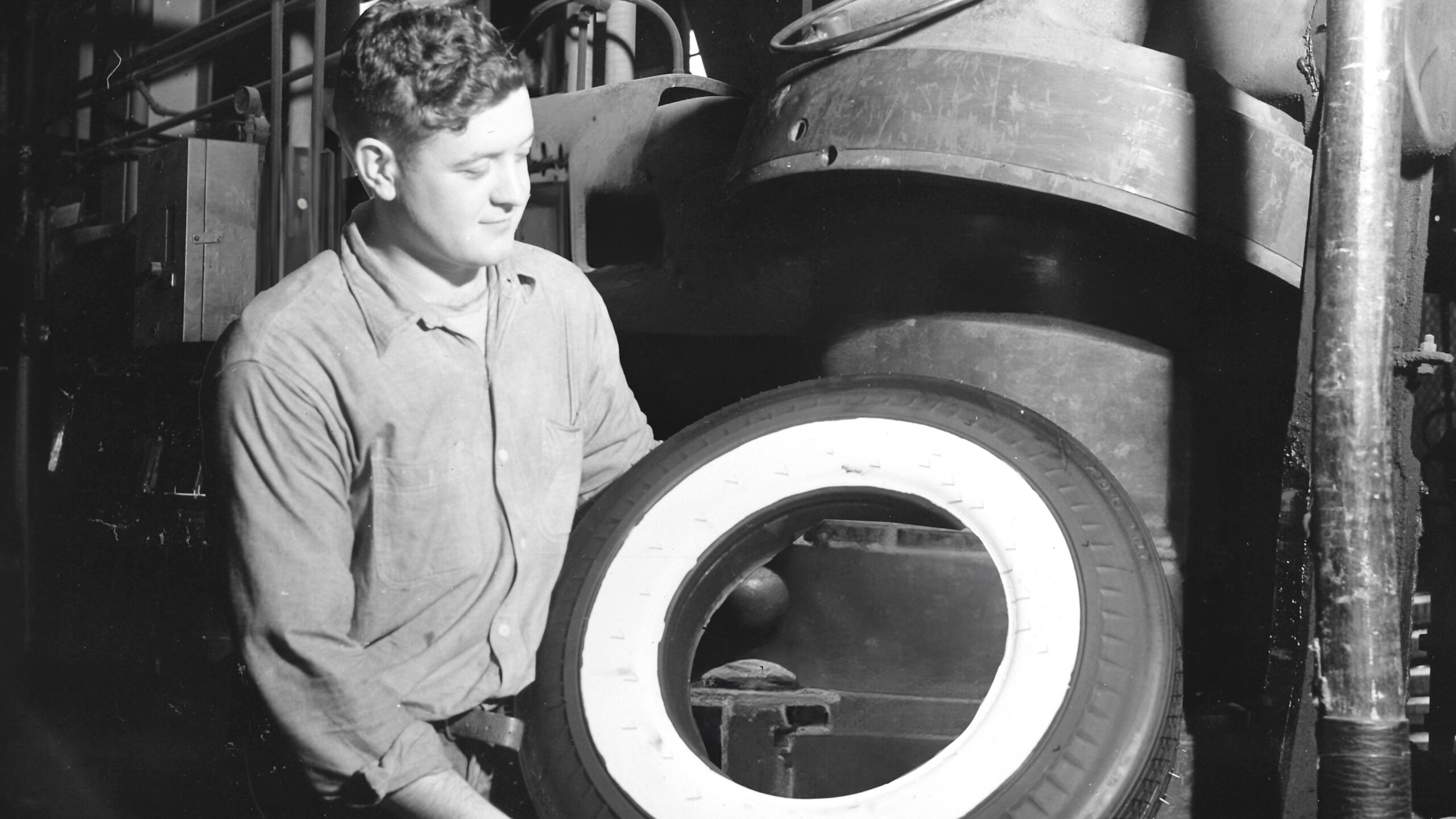
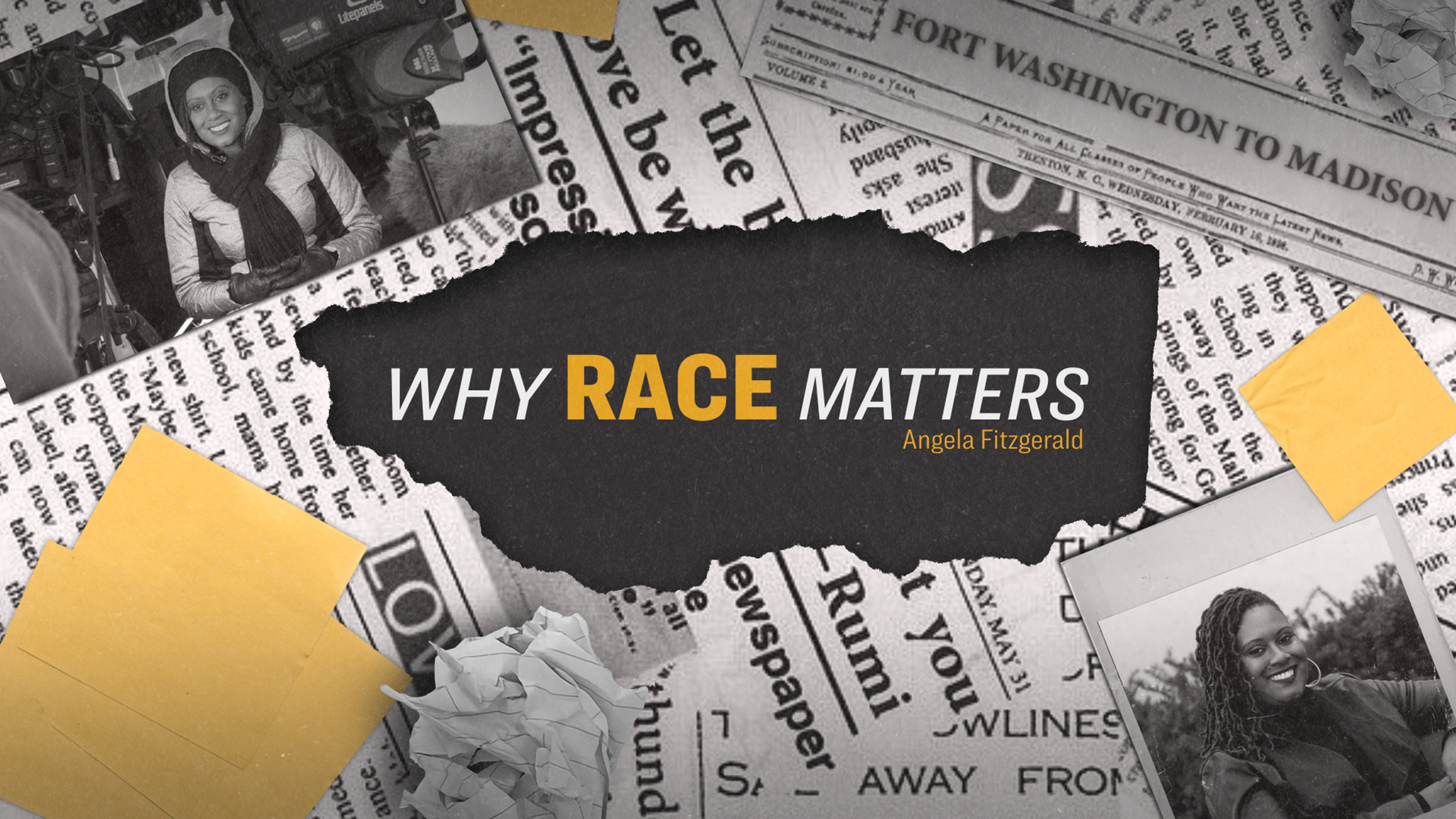



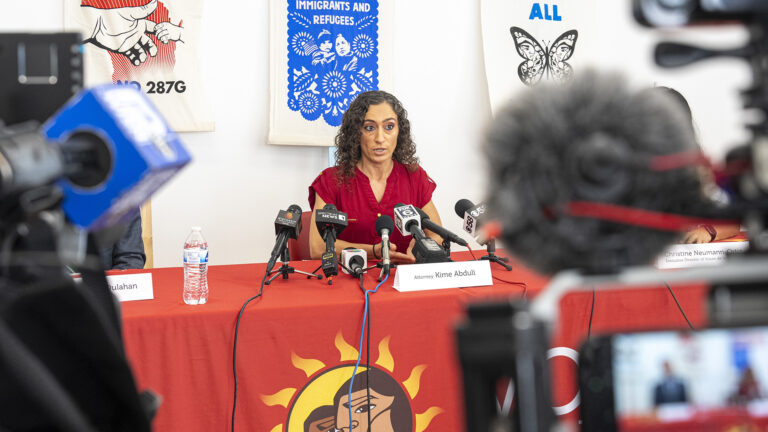
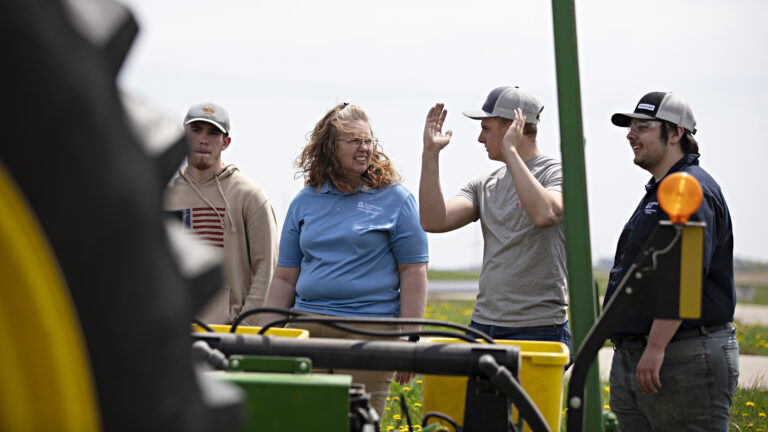
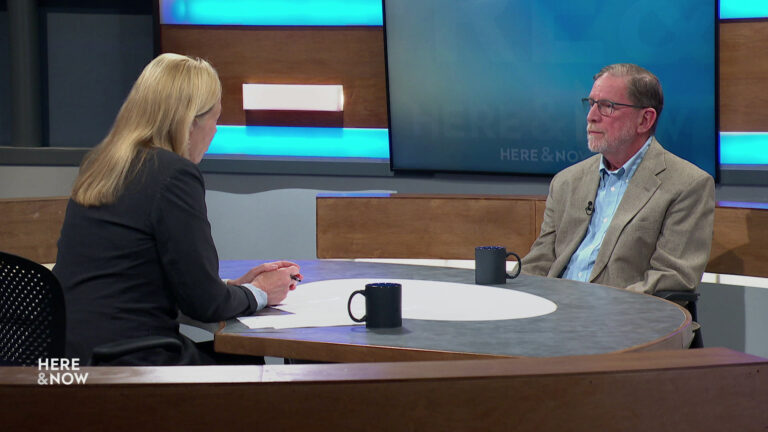
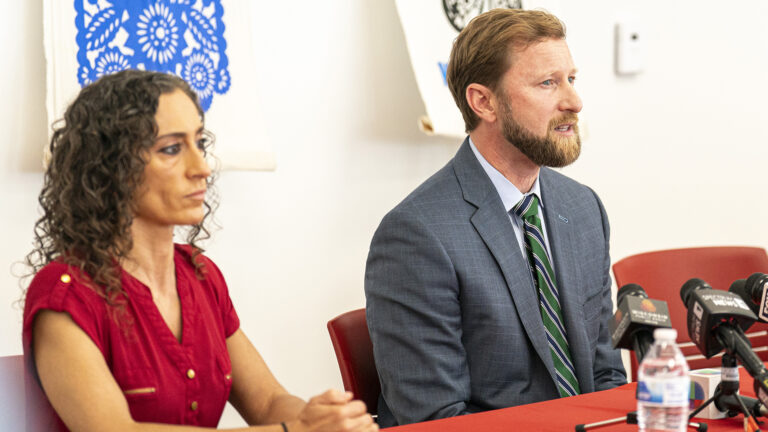
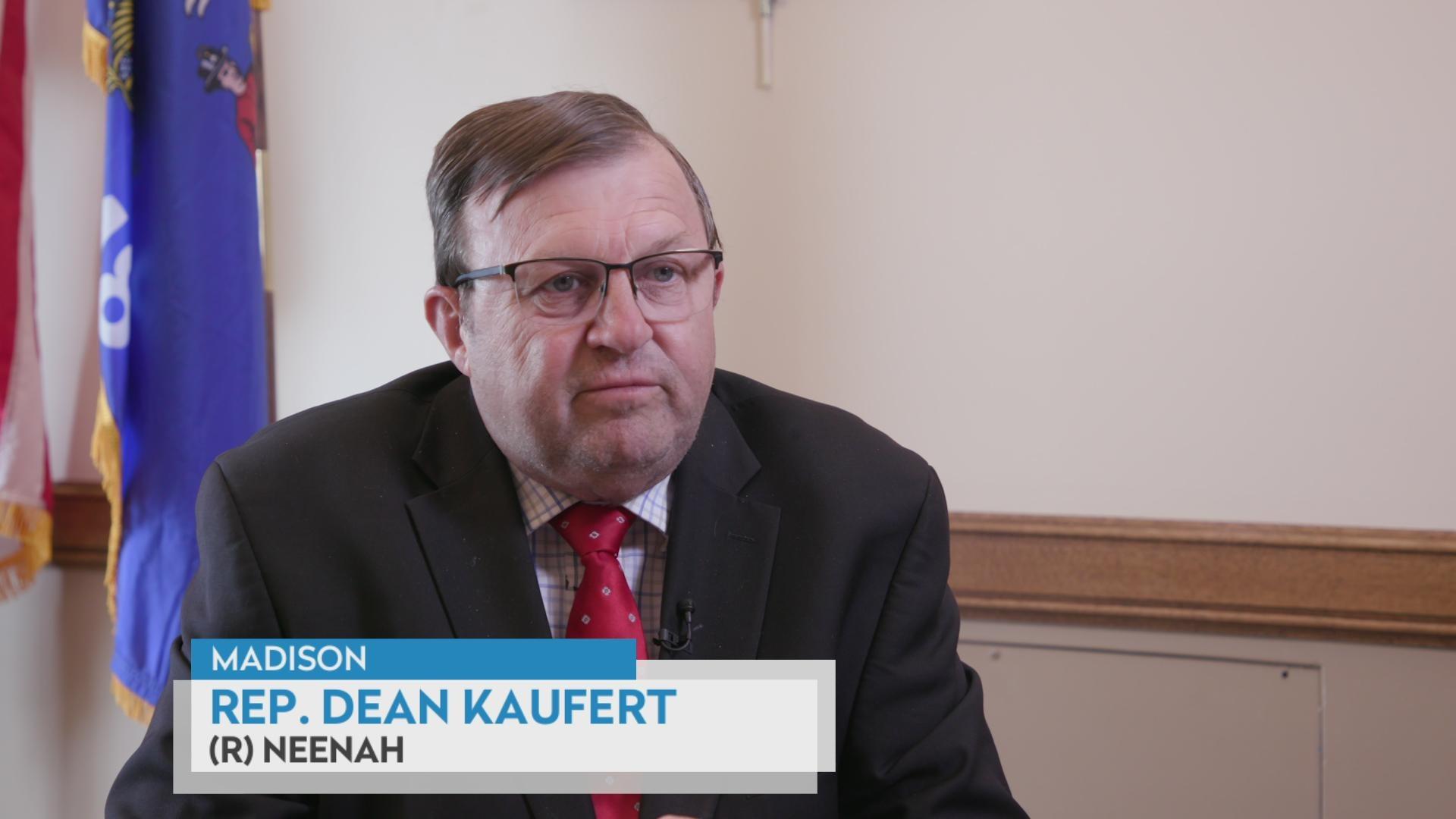
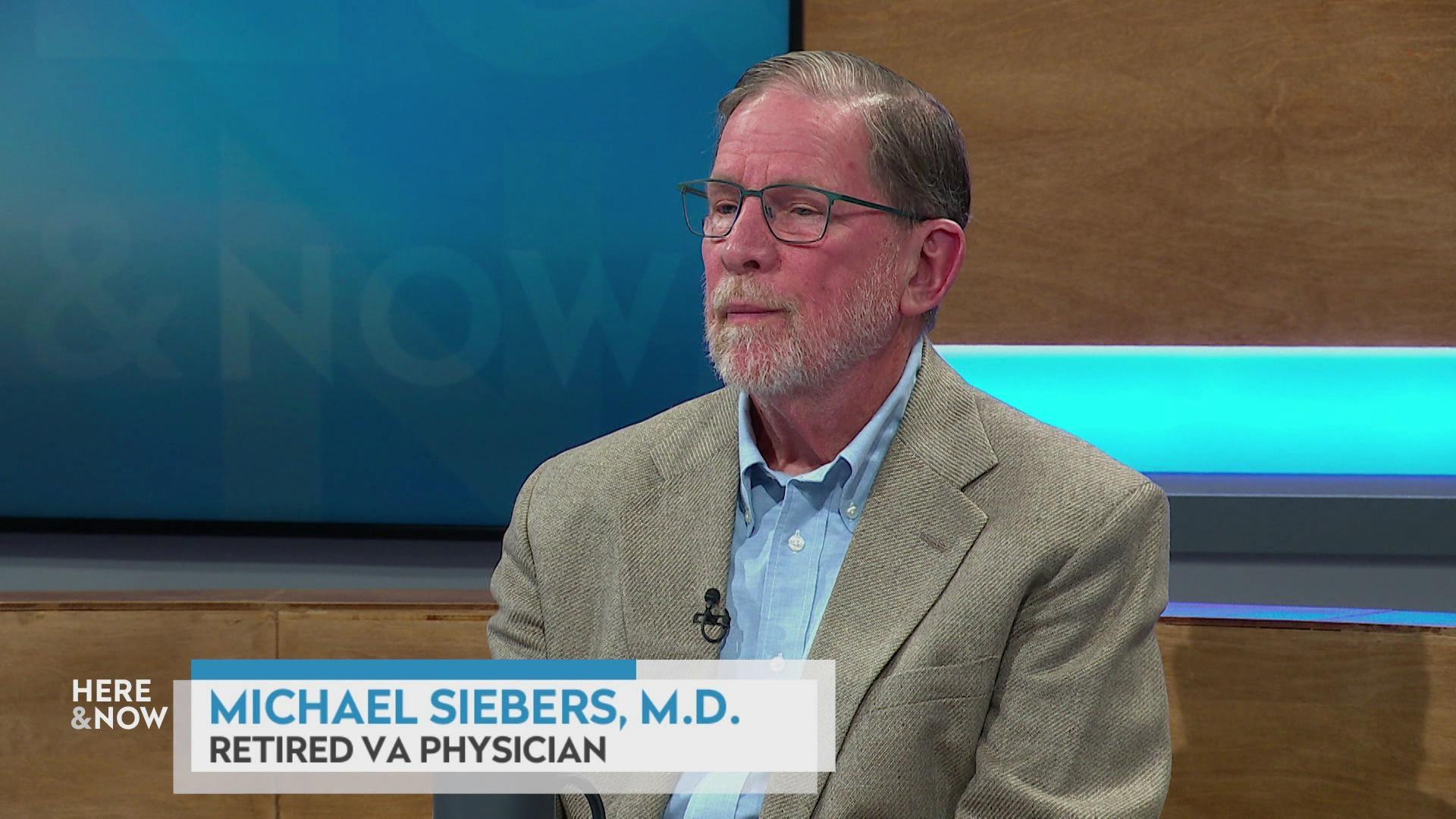
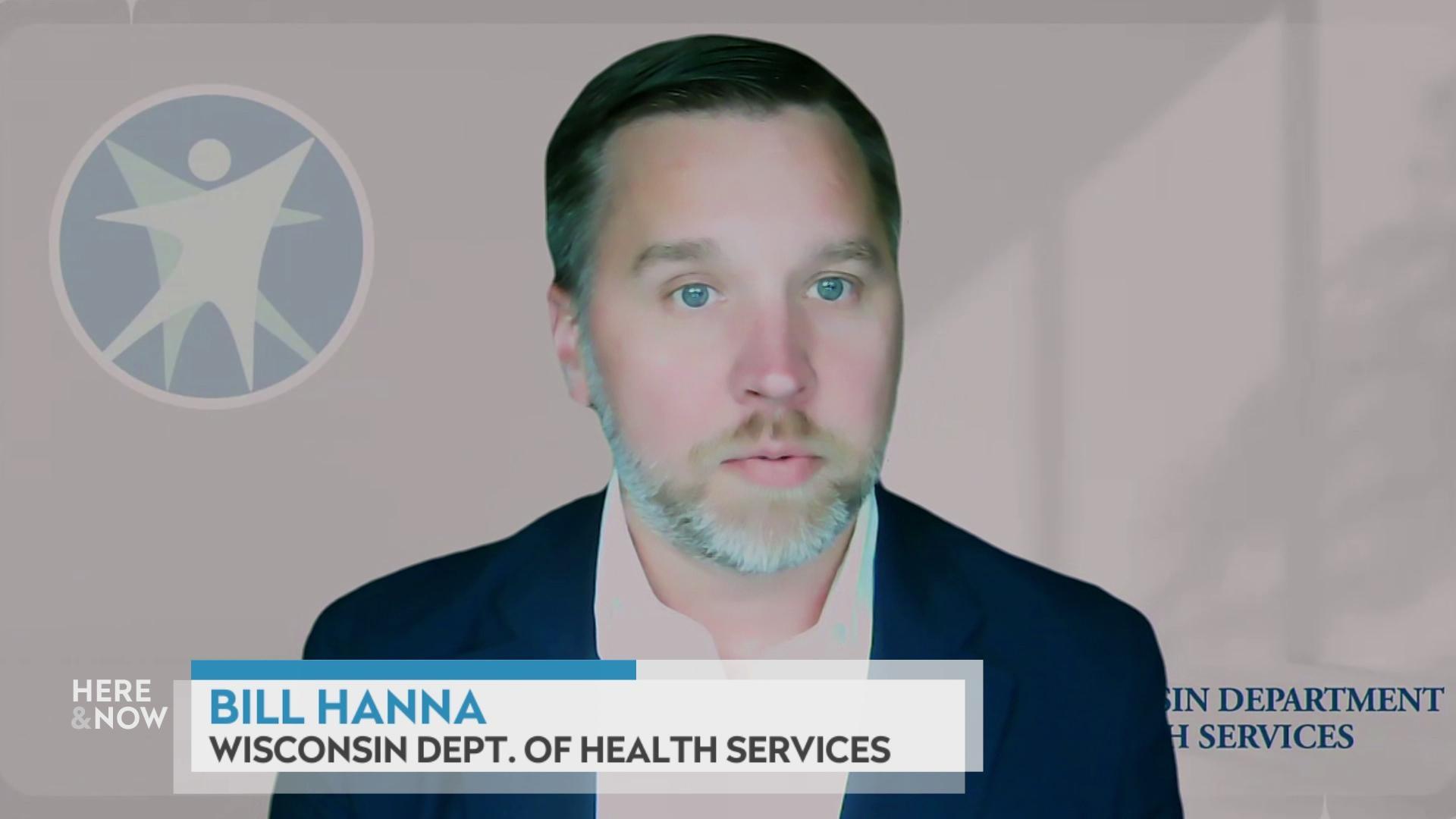
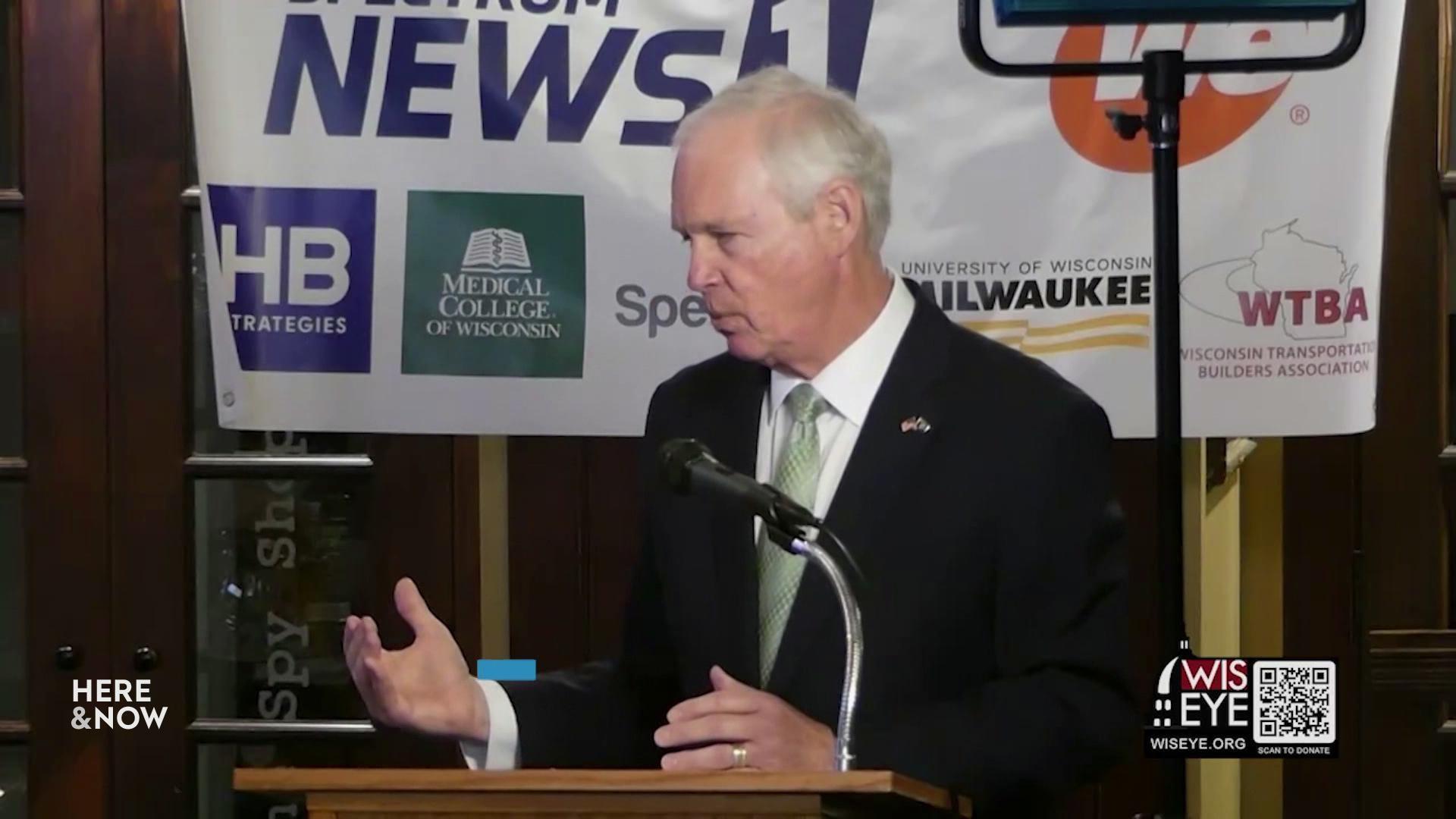
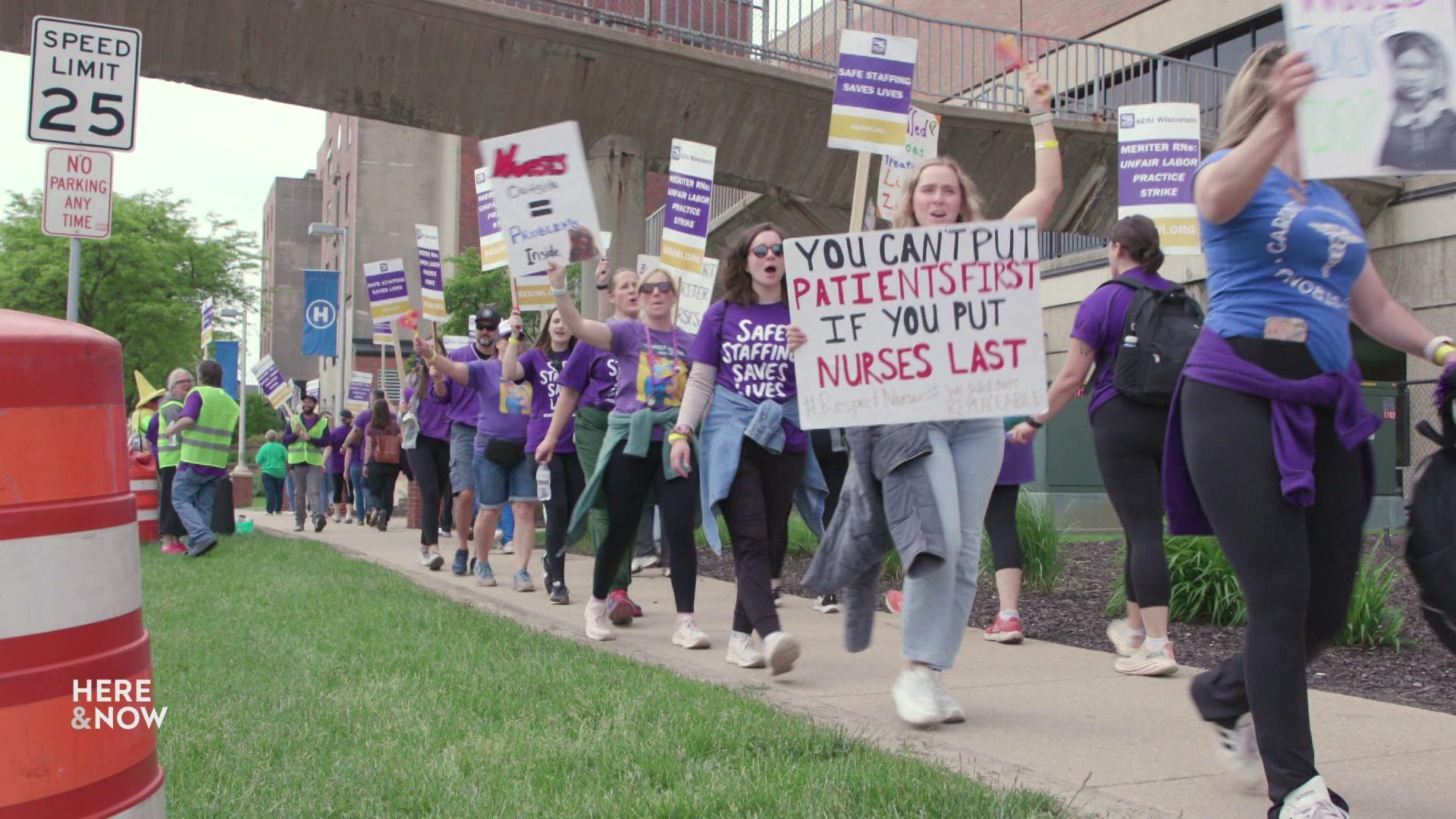
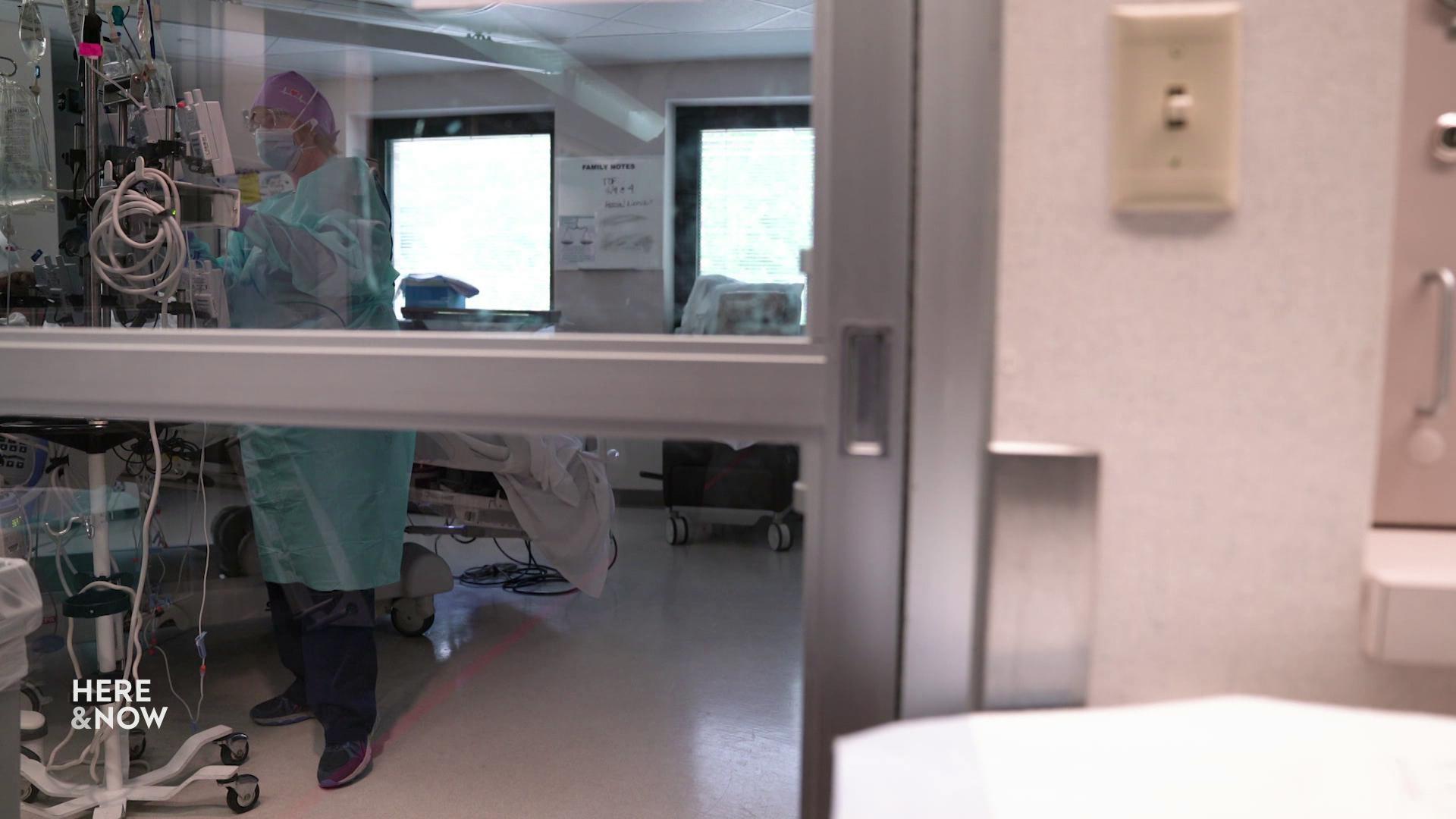
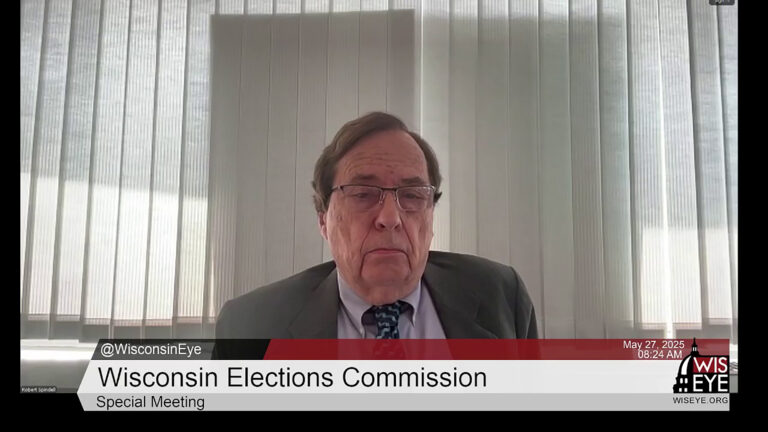
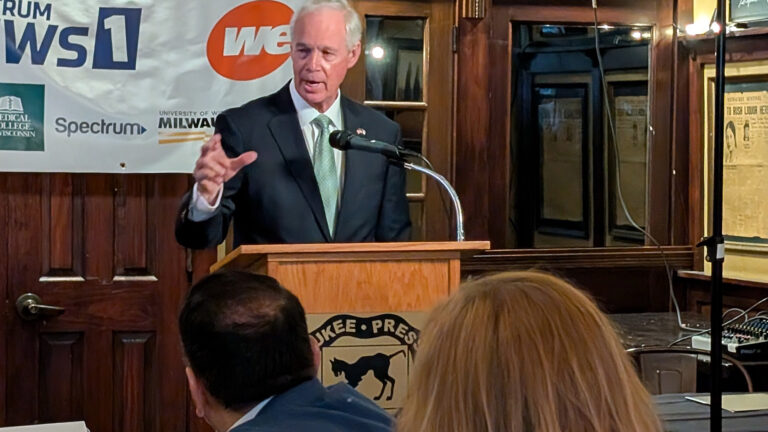

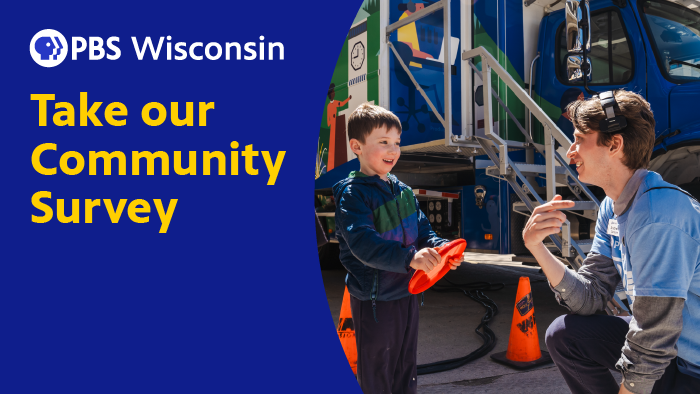
Follow Us